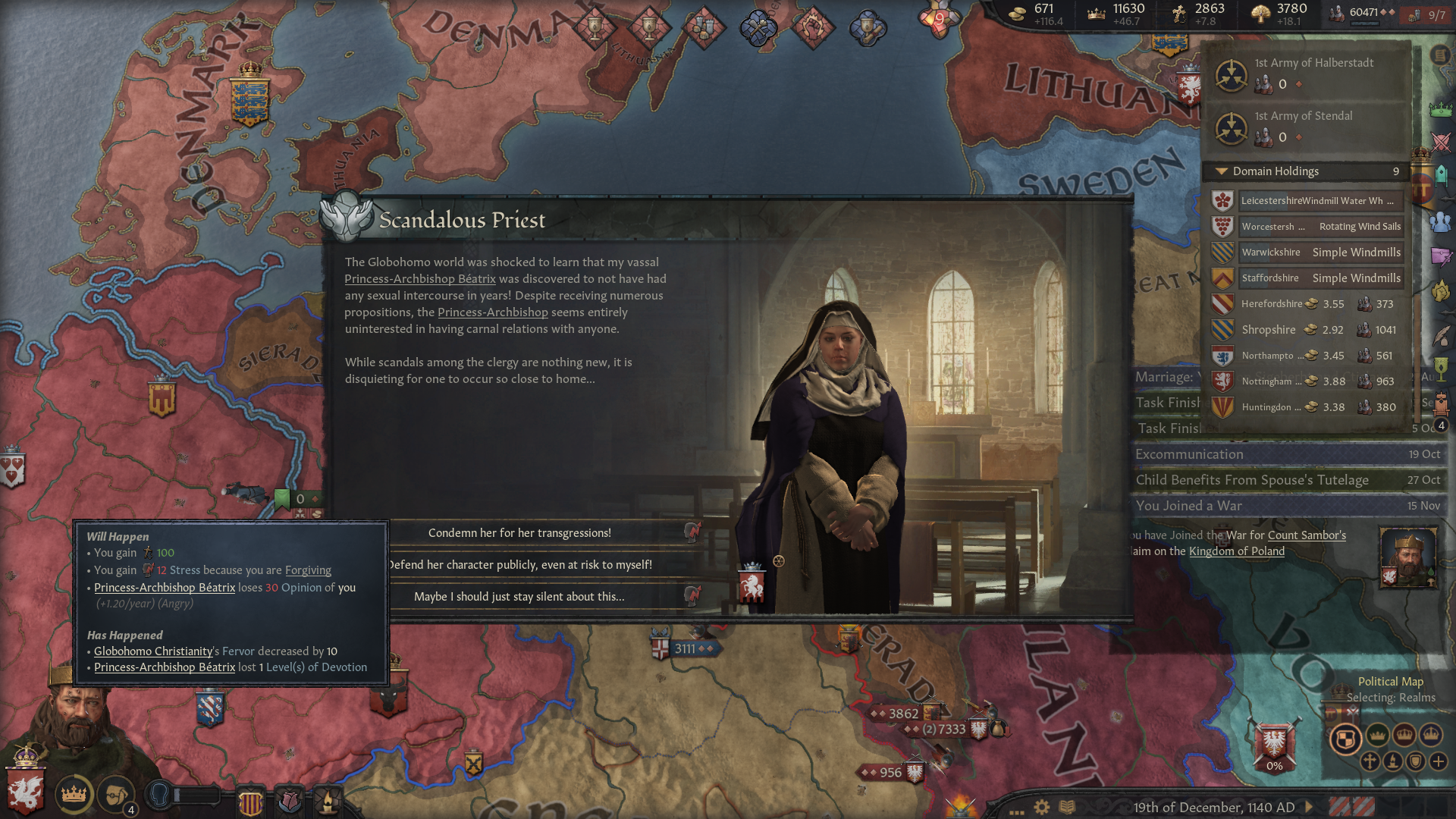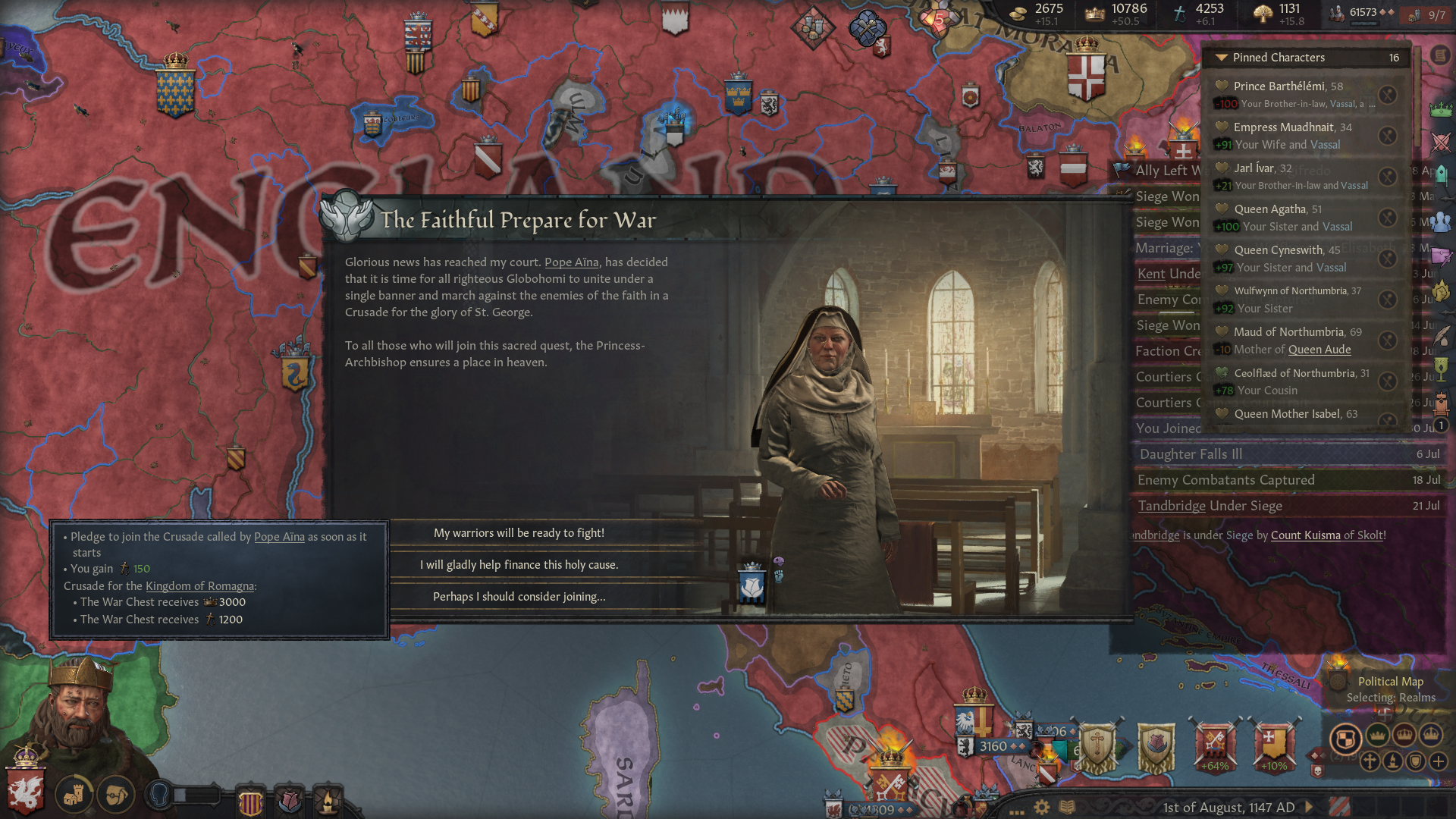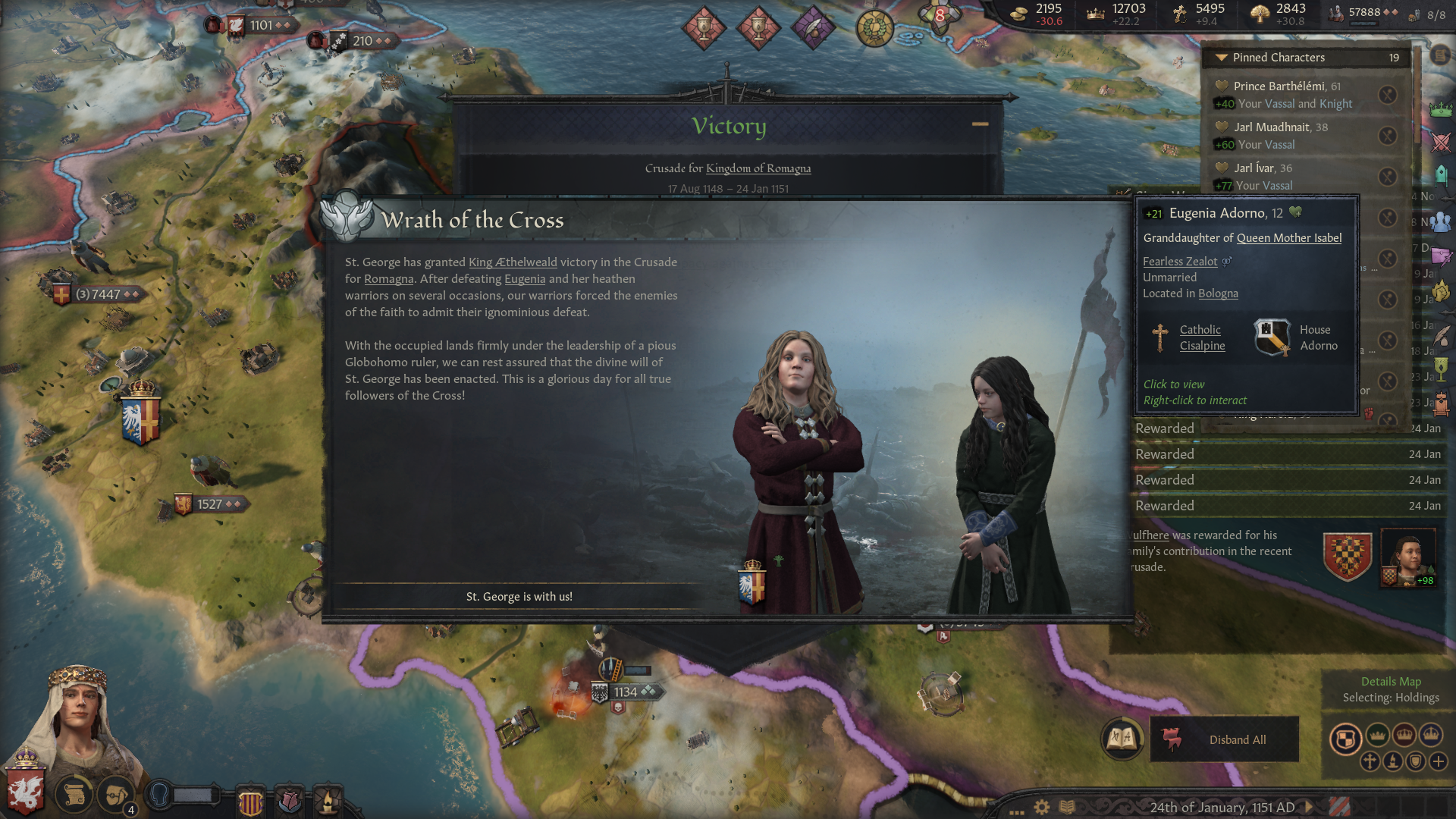darkpatriot
Arcane

- Joined
- Mar 28, 2010
- Messages
- 6,480
Absolutely none of those things were added in T&T. I think maybe you are just not understanding the scope of what I'm describing. Like you can find minor individual examples of something vaguely similar to the words I used or something. Like if I really squint I can sorta say well maybe he's talking about this really minor and simplistic thing and he lacks the context to understand how limited the implementation of it is.I want characters to have meaningful differentiation like hobbies, interests, talents, personality, social custom, and ideological preferences, and so on. If I am extroverted and like philosophy and so is another guy we can set up debates with ourselves and maybe a few others and then we are bros. If I like horseriding and nature and so does another guy we can go ride in the forest and do birdwatching or some shit. If we have nothing in common we can't be friends. Like you won't have specific speeches we give at the debate or w/e and the player is still imagining the specific bird we see or the plants in the forest but the characters are differentiated.First they have pledged never to allow landless characters, in fact one reason they don't put in Republics and Theocracies is that it is at odds with the dynasty/family sequential character play.I think the 3D models are absolutely the right call and pretty cool tech, they do help in matters like immersion, being cinematic and such.Well as I'm sure everyone on this forum knows I'm a massive 3D model hater. In fact the minutes I saw them I decided not to buy the game, or any other Paradox game.
(also you can now decide to marry based on which women is hotter to you, which is kinda realistic ngl lol)
Plus they are moddable, its crazy awesome to see Guardians of Azeroth managed to use them to make Warcraft races.
Its just that the game has immense problems elsewhere.
Honestly, where I really want to see the 3D models is in Stellaris 2. You could really get crazy with customizable aliens, people modding their own alien races and posting them on the internet, etc etc. Paradox could easily dunk on Spore big time.
I am also a big fan of the 3D models. It allows more of the focus to be put on the characters. And I also agree fully with CK3s increased focus on the character and roleplaying aspects over the strategy game aspects. While people who are looking for a strategy game with more fleshed out characters may not like it, I am really digging the unique gameplay. So far the major DLCs have all been focused on beefing up the character and roleplaying aspects, so that seems to be the way Paradox as decided to take this game.
I think a robust RPG/life simulator within a strategy game simulation is a pretty fun model and I would like to see some others besides paradox try their hand at it. So far the more indie attempts, like star dynasties, failed because they still were making strategy games and there just wasn't enough role playing/life simulation content.
With CK2 it always seemed kind of silly to offer the ability to play landless characters, despite it being frequently requested. Too many of the mechanics were tied up in actually ruling lands and fighting wars, but I think CK3 may be able to allow it if they keep expanding the roleplaying focus. The main obstacle seems to be that they would theoretically need to generate even more characters that would need to generate events and make decisions which would impact performance (the reason rulers of baronies aren't playable), but if it is strictly limited to generating characters that are necessary for the landless player to interact with, it might just happen one day.
Second you have it all wrong. The role play aspects suck. If the roleplay/character mechanics were deep and awesome I'd be happy. But they aren't. Characters barely interact, most characters are interchangeable and completely indistinguishable from any other character. You must be one of those DnD people who just creates everything in his head canon and doesn't care if the gameplay doesn't actually support anything.
Any game that attempts any kind of emergent storytelling that doesn't engage with and make use of player imagination is missing the entire point.
The mechanics don't need to fully simulate every aspect of something, only enough to provide a skeleton for imagination to take over. Human beings are natural storytellers and also naturally create stories from random and unrelated events. A game looking for any kind of emergent storytelling needs to leverage that in order to be successful.
CK3 is more than successful at this. The initial base game was still lacking in this regard, imo, but the DLCs have managed to add enough additional mechanical elements and events to more than adequately form the necessary skeleton at this point.
I am aware on their comments regarding landless characters, but they are also going to be supporting this game for a long time. And Paradox has never had any issue with deviating from their previous promises and statements in the past. I think there is a 50/50 chance we will see some kind of landless player character gameplay in the coming years. Probably not geared towards playing forever as a landless character, but to allow for some transitional gameplay. Either as a start where you don't start with land, or as a way to keep playing when you lose your land to let you try to get it back or gain new lands.
"We need 3D models but no social simulation" is a galaxy brain DnD theatre kid moron take.
If you were talking about the base game at release, I would basically agree with you. But it sounds like you haven't actually played any recent versions. Most of those things were added in with Tours and Tournaments, along with many things that you didn't mention, but some of the mechanics and content to define your character, their relation to others, and various social interactions were added in Royal Court. And some of that was already set up in the base game, although not enough to really pull it off.
The 3D models are definitely helpful though. It allows a visual presentation of your character and other characters (Including their status, culture, and even some aspects of their history) during the scenes that are more expressive and even provide details about the characters that just wouldn't be possible with just a single picture, or even static 2D portraits.
You can argue till you are blue in the face that Crusader Kings 3 doesn't have these things, but I have played it (although not with wards and wardens yet) so I know that it accomplishes these things in a more than satisfactory manner. You can't tell me something isn't there when I have see it with my own eyes. There is still room for improvement, but it looks like this is an area that Paradox will be focus on for future mechanics and content. So there will be even more.
I understand how the folks who want a Grand Strategy game would be disappointed though. The direction they have taken and are taking CK3 in is moving it well out of the Grand Strategy wheelhouse and providing that experience. I am fine with that though. Because, while it isn't the most well represented genre, there are still numerous alternative Grand Strategy games to play, while CK3 is unique as I can think of no other game that does the type of gameplay that it does.
I understand your love affair with deep simulations. But it is not necessary to accomplish the allowing those gameplay decisions for almost all instances.
There are numerous traits associated with various hobbies, talents, and interests. Some preexisting, but more added for T&T. In T&T they also added experience and different levels of many of those traits. And you can absolutely engage in those activities to interact with other characters to establish relationships and pursue other goals.
Personality has always been in the game, and has always been used in a meaningful way via the well-designed stress system. They effectively block you from doing many actions, or rewards you for others, in line with your personality. And this has continued for all the new events added since launch.
Philosophy has a handful of traits associated with it, mostly tied into the personality system, although it is also partly present in the Religious system and culture system. Which impact both the events and actions you have as well as the types of choices during them. Ditto for ideology and social customs.
While I am sure you imagine a deeply complex simulation where all of these are tracked with great granularity, that is just not necessary to accomplish what CK3 does.
It wasn't mentioned in our conversation so far, but the other thing that T&T did that greatly improved the roleplay aspect was the travel system which helps somewhat solve the issue of characters and events feeling floaty, random, and outside your control. Not everything has been tied into that fully, but updates appear to tie more to it. It looks like Wards and Wardens adds wards moving to different courts into the travel system if I am reading it correctly. IMO, tying more of the existing game mechanics to the travel system is more important than creating more types of traits and personalities to represent hobbies, interests, and philosophies.
Last edited:
















